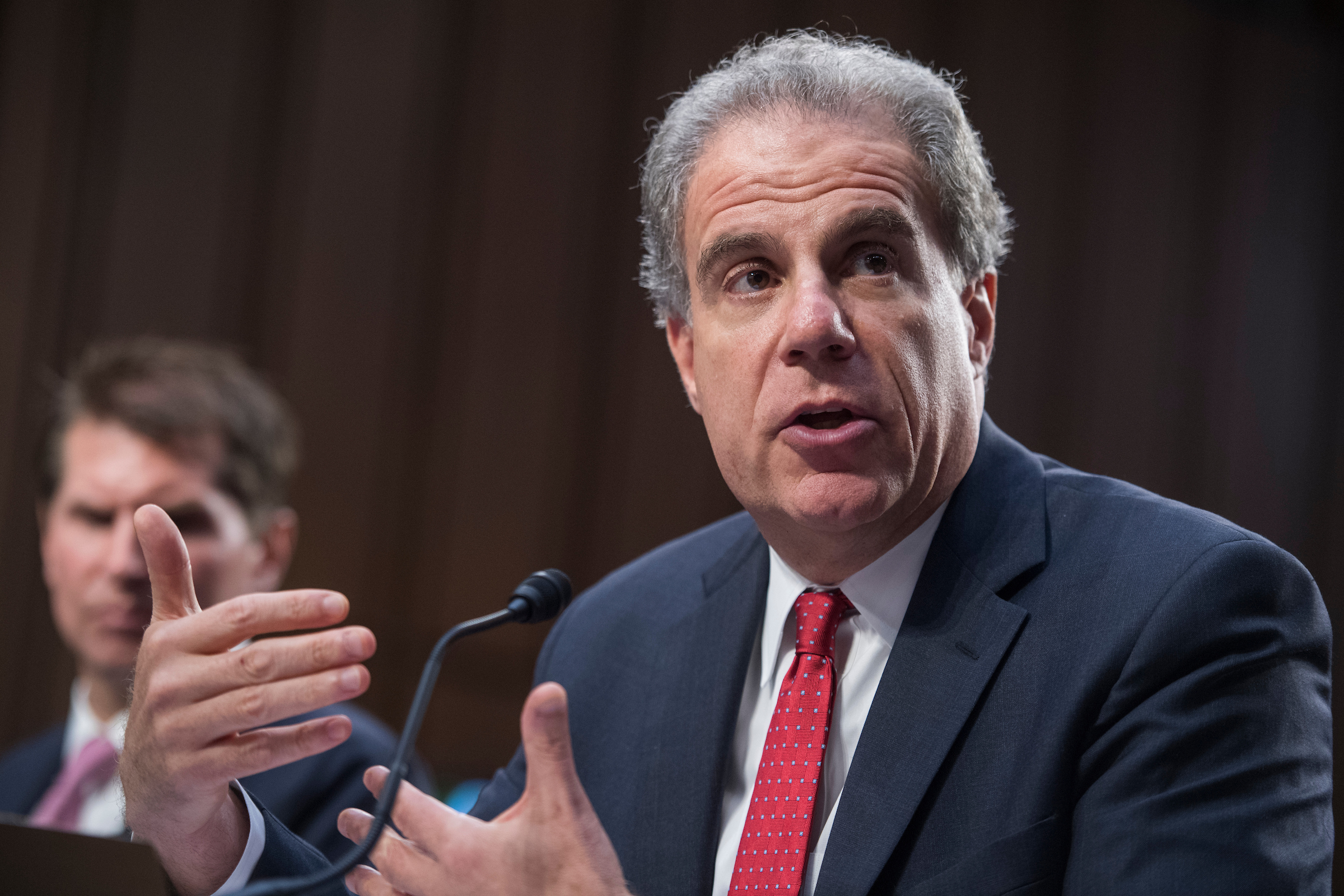A reporter’s homage to government auditors — unsung heroes of transparency
America needs information that presents an objective version of reality

OPINION — Whistle-blowers and internal documents are the lifeblood of journalism.
Without such sources, the full story of what’s happening in our country can’t come out.
But there’s another, less heralded category of information that feeds journalism: the government institutions that provide Americans with non-partisan, objective data — places like the Government Accountability Office, the Congressional Research Service, the Congressional Budget Office and the inspectors general.
These organizations only exist because some lawmakers and staff long ago had the foresight to create them. Those bygone lawmakers knew something important: America needs institutions charged with regularly unearthing information that agencies would otherwise withhold, and that data needs to be put in front of the public, free of partisan spin.
A little reality
These researchers, auditors and investigators toil away in obscurity — but their work is critical. Especially today, as the media becomes increasingly ideological and balkanized, Americans need to have people they can turn to for as objective a version of reality as possible.
America’s auditors are, of course, as fallible as any humans. But more than most, they get it right and play it straight.
We need that now more than ever. Not only Congress but also the press needs this country’s auditors to set the record straight.
Auditors can command attention and demand answers at federal agencies and other organizations in a way that many reporters, especially from smaller news organizations, cannot.
Sometimes the resulting audit report is a story in itself. Other times, such a report can provide a journalist with crucial background facts to compare to what politicians say. Or the audit may suggest a line of inquiry to a reporter.
The auditors themselves sometimes are available to explain an arcane subject to a reporter. These experts’ names usually do not get in the paper. But they help the press translate increasingly complex issues into plain, concise English for audiences who have less and less time to consume news.
Lawmakers of yore not only created audit and investigative bodies but they also demanded in law that particular types of information be made public.
Some of that information concerns the U.S. military.
It is the law that the Pentagon must regularly send lawmakers certain unclassified summaries of key data — about the cost and efficacy of weapons, for example. It is safe to say that, absent such statutes, such information would be withheld from public view.
Such reports gave the press and the Congress early clues about the ballooning costs and shrinking capabilities of weapons such as the Navy’s Zumwalt destroyers, the F-35 fighter jet and the Army’s now-defunct Future Combat Systems. Whether Congress does anything with the information is a separate and serious question.
Defense secretaries routinely complain about such reporting requirements, and many of the dictates are unnecessary. But in many cases these reports provide the only way the public can really learn about how well approximately half of its annual discretionary appropriations are spent —and about how the wars waged in the public’s name are conducted.
President Donald Trump said last month that it is “insane” that the Pentagon’s unclassified inspector general reports about U.S. wars are made public.
Such reports have told us how, despite scores of billions of dollars of investment in Afghanistan over roughly 17 years, the Afghan security forces are still lacking, the narcotics trade still flourishes and the Taliban still controls nearly half the country.
The president may not want that information made public. But that’s the law. He can try to change the law — but unless he does, he is bound by it.
That’s because the people’s representatives, some of whom are no longer with us, decided the public has a right to see them.
The president’s comments about the inspector general reports are part of a larger campaign.
Limiting access
Its goal is to limit the public’s access to its government’s information and to discredit credible sources like Washington’s auditors.
Martin Baron, the Washington Post’s executive editor, called this a campaign to “disqualify independent arbiters of fact [and] obliterate the very idea of objective truth” in a speech last fall.
It’s an effort to sow distrust not just in journalists but in all the non-partisan sources of facts — from law enforcement to intelligence agencies to scientists.
And why? So that people will believe only the politicians.
This is not a tactic Trump created, but he and his allies are taking it to a new level.
To say so is not to make a partisan statement. Press freedom is something every American should embrace, if only out of a selfish desire to not be fooled by people who do not have citizens’ interests in mind.
Transparency, too, is something all Americans should value, regardless of their party affiliation. That’s why it is important to sustain and nurture the organizations in Washington that do their level best to give Americans the facts they need to govern themselves effectively.
Earlier this month, the National Press Foundation presented John M. Donnelly, a CQ Roll Call senior writer, with its 2018 Everett McKinley Dirksen Award for Distinguished Reporting of Congress. Donnelly’s stories elucidated excesses in Pentagon programs and laxity in congressional oversight. One story documented lawmakers’ exaggerations about rates of military accidents and about the degree to which a higher defense budget could fix the problem. Another revealed how members of Congress had circumvented the earmarks ban by bankrolling a Pentagon fund to do it for them, with $2 billion-plus appropriated for programs the military had not sought. And a third story told the full story of how the Navy has spent $24 billion and counting over 13 years on just three still-unfinished destroyers and how the ships’ primary mission is still not defined.





